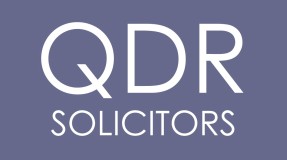The word debt always sounds negative. If someone is labelled as being in debt, it always has negative connotations. However, the vast majority of us have debts of some kind; for example, the average homeowner has a mortgage, which is debt – these are often seen as “good debts”.
On the flip side, some debts, like unplanned overdrafts, have incredibly high-interest rates and are considered bad debts because they can quickly spiral out of control, which is when people are deemed to be in debt.
All debts need to be managed, even the good ones. A mortgage is only a “good debt” while you can afford the repayments. Regardless of the kind of debt you face, whether it be a mortgage, credit card, car loan or payday loan, below are a few tips to help you clear your debt and remain debt-free.
How much do you owe in total?
It’s impossible to clear your debt without a clear plan. You need first to understand exactly how much you owe in total across your debt portfolio and the interest you are paying on each debt. The easiest way to achieve this is to look at your bank statements and note all the payments to credit cards, mortgage repayments, loans and any other monthly commitments you are tied to.
This may be pretty daunting as you may owe more than you realise, but the second stage is to add up exactly what is outstanding. It is also essential to understand how much interest you’re paying on each of those debts.
From there, you can start to plan out your financial future.
Deal with high-interest debts first
Massive interest payments are often the culprit in people getting further and further into debt. It is therefore vital to pay these debts first. Usually, debts with high-interest payments come from unplanned overdrafts, payday loans and high-interest credit cards – particularly when an introductory period has expired.
For high-interest debt, it may be possible to move these to a lower interest option, like a loan with a much lower interest rate or 0% credit card. There may be a small fee to transfer your balance, but it can be far more cost-effective in the long run. In some cases, you can find an interest free option that lasts several years and could help you save thousands of pounds.
It is important to note that while you should concentrate on the high-interest debt, you should ensure that you do not neglect to pay ongoing bills such as utilities, mortgage and council tax.
It is also vital you note when any 0% interest deals end, so you do not switch to paying interest which will add to your debt.
Overpaying
By only paying the minimum required payment, you’ll likely end up paying a significant amount of interest which will build over time. Therefore, if you can afford to, it is a good idea to overpay even by the smallest amount – this allows you to clear your debt quicker and save you money in the process.
Don’t underestimate the difference a small overpayment can make to the overall balance of your debt. For example, if you owe £2,500 on a credit card with an interest rate of 21.9% – by paying £70 a month, you’d clear the debt in 4 years and 7 months, paying interest of £1,325. If you could afford to overpay by an extra £30 a month, you’d reduce the interest to £759, and the time to repay the debt would be reduced to 2 years and 9 months.
For loans and your mortgage, it is often possible to overpay. However, please ensure you check the conditions for these as some providers issue penalities for overpayment or cap the amount you can overpay by.
Your creditors
It is essential to communicate with your creditors, particularly if you find it challenging to make your minimum payments. If your debt has been passed on to a debt agency, it is still possible to arrange an affordable payment plan that allows you to clear your debt.
Help is available
If you find your debts are spiralling and you need support and assistance, it is available. Several national debt charities offer advice, support, and guidance to help you deal with the practical and emotional side of dealing with debt.
The future is bright
Once you are back in control of your finances and have no bad debt, it is time to set aside some of your income for your future savings. If you have paid off all your debts, you should find that you have a little extra income that you can save. This way, the next time you have a life emergency, like a broken car, you will have the money to pay for it without relying on a credit card or loan. By saving £25 a week, you could have £1,300 in a year – enough for a nice break.
